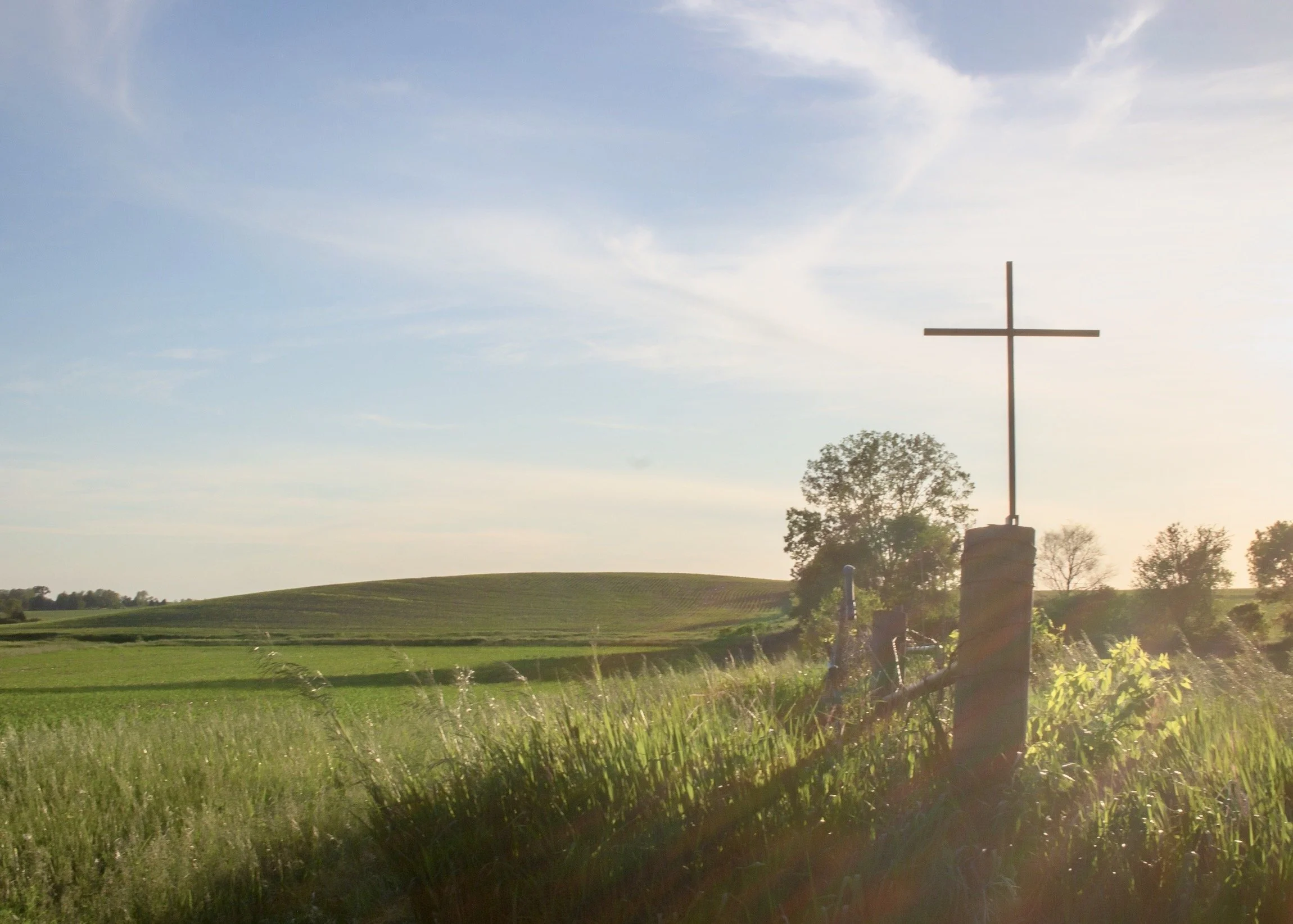What Is Heaven?
“But do you really mean, Sir,” said Peter, “that there could be other worlds—all over the place, just round the corner—like that?”
“Nothing is more probable,” said the Professor.
- C.S. Lewis, The Lion, the Witch and the Wardrobe
The classic Christian answer to the question of death and beyond is not so much disbelieved as simply not known.
– N.T. Wright, Surprised by Hope
The other day I was hanging out with the kids under a makeshift tent before bedtime when one of them asked, “where is heaven?” Without intentionally meaning to, they had internalized a view of heaven as “somewhere you go after you die, up in the sky.” This is not unlike what many of us absorb from mainstream culture: that believing in Jesus is simply a ticket to get into heaven, a place your disembodied soul goes after your body dies. Our idea of heaven is nebulous and weak, and this is strange, if you think about it. We are eternal beings who spend only a micro-fraction of our existence here on earth. If the rest of it is to be spent in this “heaven,” how come we know so little about it? How can we look forward to something we know so little about? What does the Bible actually say about “heaven”?
Perhaps the best thing we can all do right now is go read N.T. Wright’s Surprised by Hope—but until we do, here is a paraphrase of some highlights from the book, the way I shared it with the kids (who definitely won’t be reading it anytime soon).
“Heaven,” as spoken of in the Bible, differs from the way we think of heaven in two big ways. First of all, “heaven” is not so much a place as a dimension. It is not up in the sky, or in any one location within our universe; it is, as Wright puts it, “the other, hidden dimension of our ordinary life—God’s dimension.” Heaven and earth are not two different locations in the same continuum of space and matter. They are two different dimensions of God’s good creation. Heaven is where God rules and is being worshipped, where Jesus is right now in his embodied state. It is a dimension of reality that is as true as the physical world we live in, whether we are aware of it or not.
Secondly, “heaven” is not a destination. It is not, Biblically-speaking, the point of salvation. The point of salvation is not the death of the body and the escape of the soul; the point of salvation is being raised to life in God’s new heaven and new earth. This resurrection will happen when Jesus returns. We will be resurrected into new bodies, and God will remake both heaven and earth and join them together forever. The image in Revelation 21 is actually one of heaven coming down to earth, not the other way around. That is our inheritance, a renewed world, and new bodies to inhabit it.
What if we die before this happens? After death, we are beside Jesus at once, in an intermediate period, there awaiting the bodily resurrection that will occur later. Jesus uses the word “paradise” (Luke 23:43) to describe this intermediate state, and culturally-speaking, this is what most of us mean when we say “heaven” (leading some to call the post-resurrection period “the eternal state” for the sake of differentiation). Wright describes this as the place where God’s purposes for the future are stored up, “the place where they are kept safe against the day when they will become a reality on earth.” But it’s not the final destination. Just because someone has said “I’ve kept some beer in the fridge for you,” Wright says, “doesn’t mean one has to climb into the fridge in order to drink the beer.”
What does this mean for us? Many things, but here are a few implications that struck me:
The heavenly realm is a lot more real than just some place we go after we die. It exists, fully, now, whether we are aware of it or not: God in his throne room, Jesus as embodied Lord, us with every spiritual blessing in Christ (Ephesians 1). Wright writes, for example: “The Lordship of Jesus; the fact that there is already a human being at the helm of the world; his present intercession for us—all this is over and above his presence with us. It is even over and above our sense of that presence, which of course comes and goes with our moods and circumstances.”
We are far too individualistic in how we think about the future. If you read the Bible, the overwhelming picture you get is that the point is not “what happens to me after death,” but “God’s purpose of rescue and re-creation for the entire world.”
The present bodily life is not valueless because God will raise it to new life. Have you thought about this? What we do in our present will in some way last into God’s future. What we do in our life now is not just to make things more bearable until we leave earth, but part of building for God’s kingdom in the recreated earth one day. It is because of the resurrection that we know that our labor is not in vain (1 Corinthians 15:58). Wright writes, “The work we do in the present, then, gains its full significance from the eventual design in which it is meant to belong.”
The dimension of reality that we can see is not all there is. The world and what we do in it now does matter. The kingdom of heaven, the sovereign rule of God, was and is breaking in to the present world, and we can be agents of that transformation. The more we understand our eternal future, the more we begin to see all of those things, and more. Sure, many parts of it we may not know, but we know enough, I suppose. We know enough to have hope and purpose for life now.






